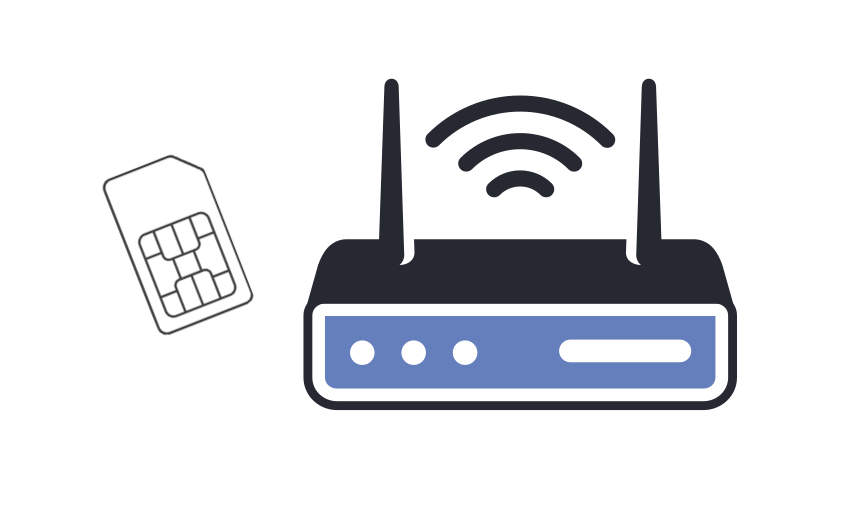
Table of Contents
When upgrading your cellular modem or router, ensuring SIM card compatibility is a critical step. Neglecting this can lead to unnecessary frustrations, including non-functioning devices or limited connectivity. Your SIM card is the key to unlocking your device’s potential, as it bridges the connection between your hardware and the cellular network. However, compatibility involves more than just slot size—it also depends on factors like your data plan and the type of modem or router you’re using. This article will walk you through everything you need to check to guarantee your SIM card works seamlessly with your new setup, helping you avoid disruptions and optimize your connectivity.
Understanding SIM Card Compatibility
SIM card compatibility encompasses more than just ensuring the card fits in the slot. You need to evaluate factors like size, data plan compatibility, and the type of cellular modem or router you’re upgrading to. Let’s break these down.
1. SIM Card Size
Modern SIM cards come in three primary sizes:
- 2FF (Mini SIM): The largest of the three, often used in older devices.
- 3FF (Micro SIM): A smaller size commonly found in devices from the early 2010s.
- 4FF (Nano SIM): The smallest and most widely used size in current 4G LTE and 5G devices.
Why It Matters: The size of your SIM card must match the slot in your new cellular modem or router. While SIM card adapters can help fit smaller cards into larger slots, they’re not a permanent solution and can sometimes cause connectivity issues. Confirming the correct size ensures a secure fit and optimal performance.
Pro Tip: When you acquire a new data plan, your provider typically supplies a SIM card with perforated edges, allowing you to choose the size that fits your device. However, always verify that the size you select aligns with your hardware requirements.
2. Current Data Plan
Your data plan plays a significant role in SIM card compatibility. Here’s what to check:
- Device Locking: Ensure your plan isn’t locked to a specific device or device type. Locked plans may not work with third-party or bring-your-own-device (BYOD) setups.
- 4G LTE vs. 5G: Confirm your plan supports the technology of your new modem or router. For instance, a 5G router requires a 5G-compatible data plan to take advantage of its capabilities.
- Data-Only Plan: Cellular modems and routers rely on data-only plans. Plans intended for phones often include voice and SMS features, which are not supported by most routers.
Why It Matters: A compatible data plan ensures you can maximize the speed and connectivity features of your new hardware without encountering network restrictions or throttling.
Pro Tip: Reach out to your carrier or provider to confirm that your existing plan is compatible with BYOD devices and supports the technology of your new equipment.
3. Type of Cellular Modem/Router
The hardware you choose—whether a 4G LTE or 5G modem/router—is another factor influencing SIM card compatibility. Here’s what to consider:
- 4G LTE Devices: These are widely supported and can operate with most data plans, provided the plan isn’t locked to a specific device.
- 5G Devices: While backward-compatible with 4G LTE plans in most cases, 5G devices achieve their full potential only with a 5G-compatible data plan.
Why It Matters: Using the wrong SIM card or data plan with your hardware can result in suboptimal speeds or, worse, a non-functional connection. Matching your SIM card and plan to your hardware ensures you fully leverage its capabilities.
Pro Tip: Check the specifications of your new modem or router. Manufacturers often list supported SIM card sizes and data plan requirements in the product documentation or online.
How to Ensure Seamless SIM Card Compatibility
- Consult Your Sales Rep: When you sign up for or update your data plan, check with a reputable sales consultant that the SIM card is compatible with your specific hardware and use case.
- Verify the Hardware Requirements: Check your modem or router’s documentation to determine the required SIM card size and network technology.
- Consider an Upgrade: If your existing data plan doesn’t support 5G or is locked to a specific device, upgrading to a more flexible plan might be necessary. At 5Gstore.com, we offer a few data plans that we can confirm are compatible with the cellular routers we support.
- Test Before Committing: If possible, test your SIM card in the new hardware before fully transitioning. This step can save time and prevent connectivity issues.
Why SIM Card Compatibility Matters
Ensuring SIM card compatibility isn’t just about fitting the card into the slot; it’s about optimizing your network performance. By choosing the correct SIM card size, verifying your data plan, and aligning these with your hardware, you can avoid headaches and enjoy seamless connectivity.
Upgrading your cellular modem or router is an investment in better, faster, and more reliable Internet access. Making sure your SIM card and data plan are up to the task is essential to maximizing this upgrade.
At 5Gstore, we work closely with our customers before and after they upgrade their cellular hardware. Our team can help you determine the right SIM card size, verify compatibility with your device and plan, and troubleshoot any issues you encounter. Whether you’re considering an upgrade or have already made the switch, our experts are here to assist you every step of the way.
Have questions about SIM card compatibility? Reach out to our experts at 5Gstore.com for guidance and support tailored to your needs.

